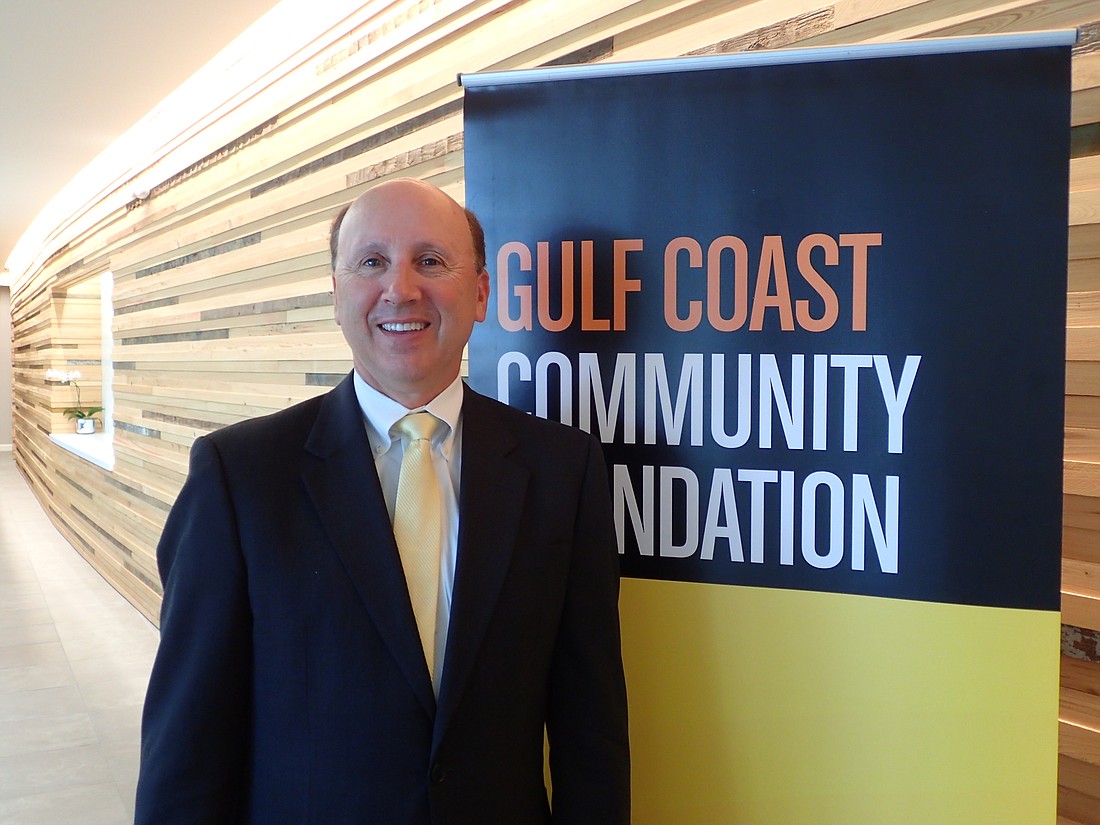- January 18, 2025
-
-
Loading

Loading

One day before the Gulf Coast Community Foundation was scheduled to host its Better Together luncheon, a major annual gathering for the philanthropic organization, Gov. Ron DeSantis advised event planners statewide to cancel mass gatherings to limit the risk of spreading COVID-19.
The Gulf Coast Community Foundation announced it was canceling the luncheon later that day — and behind the scenes, it immediately began the process of formulating a response to help the community deal with a rapidly emerging public health crisis.
“We did a 180 from planning to celebrate to dropping everything and making this a priority for our foundation,” said Mark Pritchett, Gulf Coast Community Foundation president and CEO.
For Gulf Coast and other local philanthropic foundations, the past month has involved developing a strategy for reorienting their work to address the effects of COVID-19. From providing resources for struggling individuals and families to helping service providers facing increased demand and new operational restrictions, these groups hope they can help Sarasota get through challenging and uncertain times.
This work involves a good deal of collaboration. The Gulf Coast Community Foundation partnered with the Charles and Margery Barancik Foundation to launch the COVID-19 Response Initiative, which announced more than $200,000 in grants earlier this month as the first wave of an effort targeted specifically at supporting health and human-service organizations.
The Community Foundation of Sarasota County and the Patterson Foundation are also teaming up on coronavirus aid efforts. The Patterson Foundation has committed up to $1 million in support for the Community Foundation’s Season of Sharing program, an annual initiative focused on helping people in the community with basic needs, such as rent and child care. The Patterson Foundation has also committed to matching all unique donations between $25 and $100 during the annual Giving Challenge on April 28-29, a fundraiser event for nonprofits throughout the region.
The foundations are approaching their work with a sense of urgency, with some upending the procedures that typically guide their decision-making. John Annis, the Barancik Foundation’s senior vice president for collaboration and impact, said the organization has been able to swiftly issue grants because the foundation’s board preemptively authorized staff to take action, reversing the traditional approval process. The foundation is reaching out directly to organizations with which it has partnered in the past, rather than waiting for applications and going through a more formal review.
“This isn’t the time to be rigid and do things as you normally do,” Pritchett said. “You have to just blow up your model and innovate.”
Some initial grants issued through the COVID-19 Response Initiative are designed to help service providers work remotely. Groups including the Women’s Resource Center, First Step of Sarasota and CenterPlace Health received more than $70,000 to help with a shift to virtual service. Other announced grants are going toward child care, rent assistance and crisis loan programs.
Annis said the COVID-19 Response Initiative is focused on health and human-service organizations because the foundations anticipated an increased demand for those services, not only because of the health effects of COVID-19 but because of the ongoing economic hits, as well.
“Nonprofits already stretched thin have a whole new line of people that are going to ask for support,” Annis said.
Although those involved with the foundations say some donors have expressed trepidation about giving money amid an economic downturn, the majority of philanthropists are continuing to seek opportunities to give to help those in need. Annis said some philanthropists are being more deliberate as they decide how best to donate, a sentiment echoed by Debra Jacobs, president and CEO of the Patterson Foundation.
“If you have a generorsity gene, you don’t stop being generous,” Jacobs said. “You focus.”
Kirsten Russell, vice president of community impact for the Community Foundation of Sarasota County, said the continued support is possible because of Sarasota’s robust philanthropic network and the foundations’ history of positive work.
As foundations attempt to respond as quickly as possible to the community’s needs, they must also deal with the lack of clarity on how long COVID-19 will affect Sarasota. The resources available to them aren’t unlimited, and there’s a concerted effort to issue money responsibly, prioritizing the most pressing short-term gaps that must be filled. Russell said the Community Foundation is continuously working to refine both its short- and long-term strategies as it continues to get new input from both donors and nonprofit partners.
Those involved with the philanthropic response to COVID-19 agreed that collaboration and flexibility will continue to be key moving forward.
“We have never dealt with anything quite like this,” Annis said. “This is all new ground.”